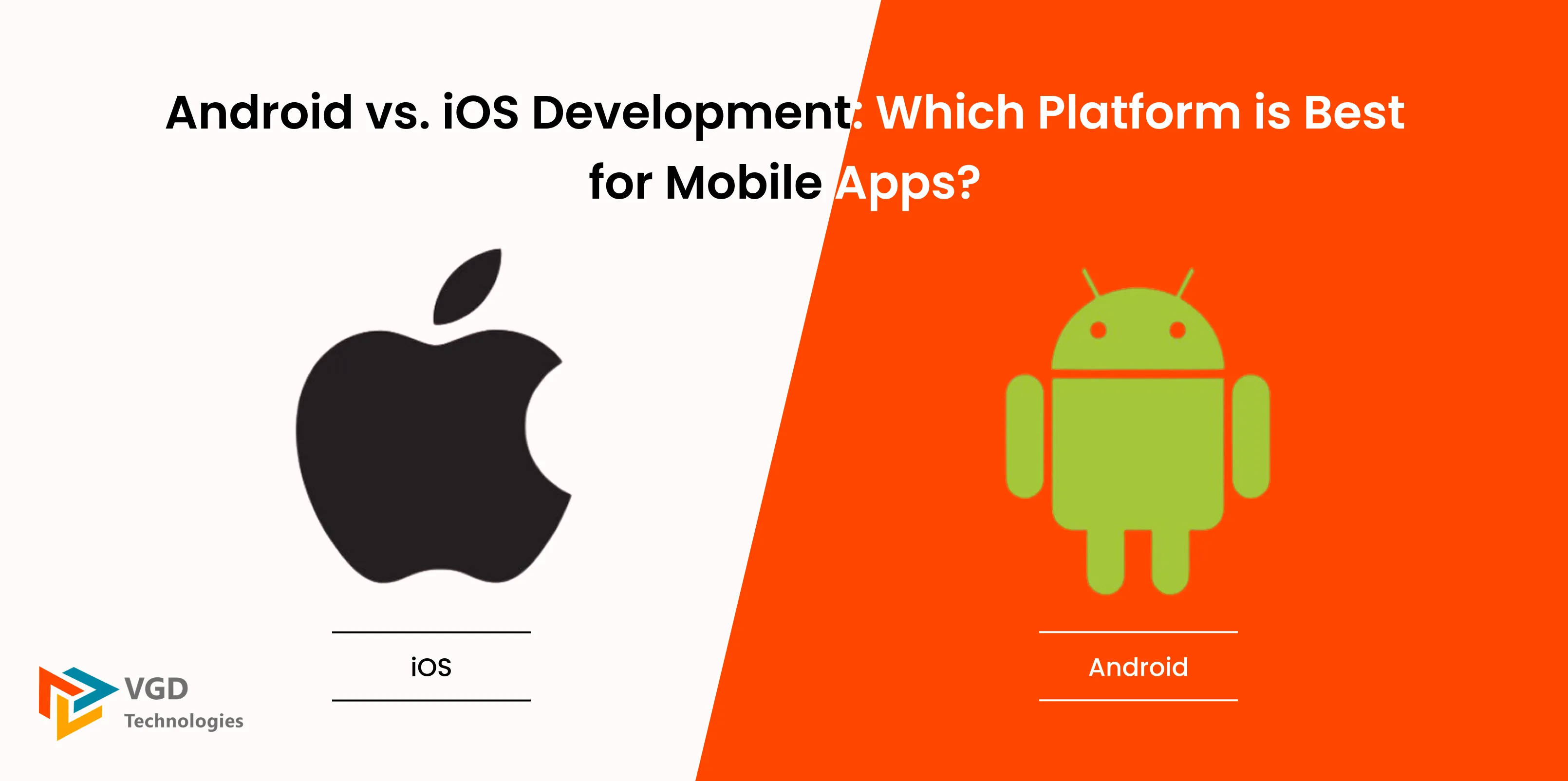Android vs. iOS Development: Which Platform is Best for Mobile Apps?
Mobile app development plays a pivotal role in our digital interactions, with countless apps designed for diverse purposes - from social networking to productivity. Choosing between Android and iOS for your mobile app is crucial, as this decision can significantly influence your app's success. Each platform offers unique features, advantages, and limitations, making it essential to understand them before proceeding.
This blog aims to provide an in-depth comparison of Android and iOS development, highlighting key considerations to help you choose the best platform for your app. By the end, you'll have a clearer understanding of each platform's strengths and weaknesses, enabling you to make an informed decision aligned with your app's goals and target audience.
What is Android App Development?
Android, developed by Google, is the most widely used mobile operating system globally. Its open-source nature, flexibility, and customization options make it popular among both consumers and manufacturers.
Advantages of Android Development
- ● Open-Source Nature: Android's open-source model allows developers to customize the OS to suit their needs, facilitating unique app experiences. A vast developer community provides numerous resources, libraries, and support, streamlining the learning process.
- ● Lower Development Costs: The abundance of free, open-source libraries and frameworks accelerates development and reduces coding time. Additionally, the wide range of Android devices allows developers to test apps across different price points without incurring significant costs.
- ● Wider Device Compatibility: Android runs on a variety of devices, from budget smartphones to high-end tablets. This diversity helps reach a broader audience, although it also presents challenges in ensuring compatibility across different screen sizes and hardware specifications.
- ● Customization Options: Users can personalize their Android devices extensively, enhancing the overall user experience. Developers can create custom widgets for a more engaging interface.
Disadvantages of Android Development
- ● Fragmentation Issues: The vast array of devices can lead to fragmentation challenges, as developers must ensure compatibility across various screen sizes, resolutions, and hardware capabilities.
- ● Performance Variations: App performance can differ significantly based on the device's hardware. Developers need to optimize apps for consistent performance, which can be time-consuming.
- ● Approval Process: While Google Play's approval process is generally straightforward, there can still be delays or rejections if apps do not adhere to Google's guidelines.
5 Popular Android Apps
- 1. Instagram
- 2. WhatsApp
- 3. Google Maps
- 4. YouTube
- 5. Spotify
What is iOS App Development?
iOS app development focuses on creating applications for Apple's mobile devices, including the iPhone and iPad. These apps are available through the App Store, which ensures a curated selection of high-quality applications.
Advantages of iOS Development
- ● User Experience and Design: iOS is known for its intuitive and clean interface, with strict design guidelines that promote consistency and quality across all apps.
- ● Higher Average App Revenue: iOS users tend to have higher disposable incomes and are more willing to pay for premium apps and in-app purchases, increasing potential revenue for developers.
- ● Stricter App Store Guidelines: Apple's stringent review process helps maintain high-quality standards, protecting users from harmful applications.
- ● Integration With the Apple Ecosystem: iOS apps seamlessly integrate with other Apple services, such as iCloud and Apple Pay, offering a connected user experience.
Disadvantages of iOS Development
- ● Higher Development Costs: Developing for iOS requires specific tools and programming languages, leading to higher overall costs. Testing on various devices can also be expensive.
- ● Limited Device Compatibility: iOS is restricted to Apple devices, potentially limiting the app's reach compared to Android.
- ● Dependence on Apple's Approval Process: The App Store's review process can introduce delays, and changes in Apple's policies may affect app development and distribution.
5 Popular iOS Apps
- 1. Facebook
- 2. Apple Music
- 3. TikTok
- 4. JioHostar
Android vs. iOS: Key Comparison
| Parameters | Android | iOS |
|---|---|---|
| Target Systems | Smartphones, tablets, wearables | iPhone, iPad, Apple Watch |
| Kernel Type | Hybrid | Linux-based |
| License Used | Apache 2.0, GNU GPLv2 | Proprietary, APSL, GNU GPL |
| Languages | C, C++, Java, Kotlin | C, C++, Swift |
| System Update | Managed through system software updates | Software updates through Apple |
| Development Tools | Android Studio | Swift |
| Internet Browser | Google Chrome (customizable) | Safari |
| Voice Assistance | Google Assistant | Siri |
| Third Party Applications | Open to third-party app stores | No third-party app stores |
| Customizability | Highly customizable | Restricted without hacking |
| File Transfer | Easier than iOS | More complex than Android |
| Development Environment | Android Studio | Xcode |
| Design Difference | XML | XIB and Storyboard |
| Web Mapping Services | Google Maps | Apple Maps, Google Maps (non-default) |
| App Publishing | Generally easy to publish | Rigorous testing and approval required |
Conclusion
Choosing between iOS and Android development depends on various factors, including your target audience, geographical reach, and specific business needs. Considerations such as maintenance, budget, and development time are crucial when determining the right platform.
At VGD Technologies, we specialize in custom web, Android, and iOS app development, offering a range of services including Flutter, React Native, and Node.js development. We leverage cutting-edge technologies like machine learning and AI to provide top-tier IT solutions at competitive prices. For inquiries or to discuss your project requirements, contact us today!

